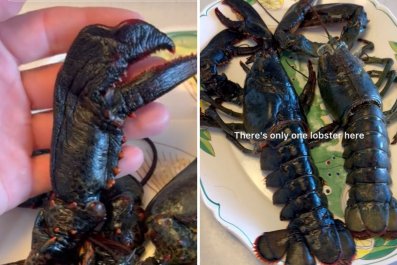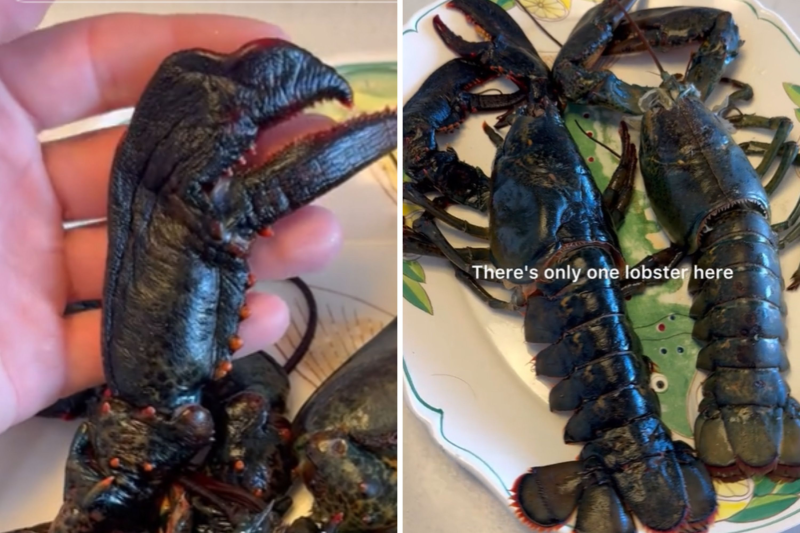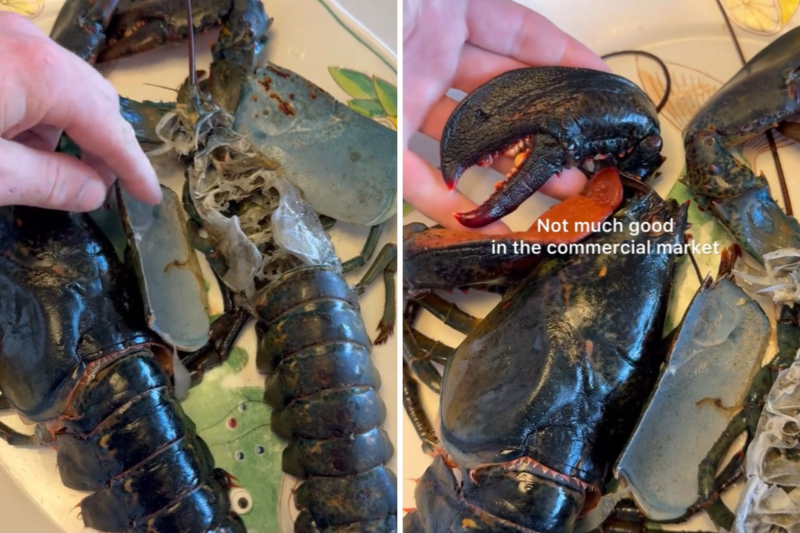
Man Captures Lobster, Then It Does Something He's 'Never Ever Seen' Before
An avid diver has gone viral for showing what happened to a lobster just moments after he captured it.
Charlie Nutting was diving in the U.S. when he picked up a lobster and placed it in his pack, thinking nothing of it. However, a clip showing what happened next has racked up more than 2 million likes since being posted to his account @charlielikeswater on July 1.
The video shows what appears to be two lobsters on a plate, but Nutting immediately starts by confirming there is "only one lobster here." He says he captured the lobster and put it in his bag, and by the time he reached dry land, it had molted its shell and died, likely just minutes later.
Nutting told Newsweek: "I'd guess I've brought home close to a thousand 'keepers' over the years, and this is the first one to have molted in my catch bag while diving."
Arthropods, like lobsters, crustaceans and some insects, grow by periodically molting their exoskeletons. Their new shell starts off soft, and hardens again in time, before the process is repeated again, according to the University of Maine's Lobster Institute.

In the clip, Nutting shows off how soft the newly molted lobster is, likening it to raw chicken, and says that it would have been rock hard in just a matter of weeks. "Pretty incredible," he said. "I've never ever seen one this soft."
Nutting's video had a huge response, with many agreeing it was extremely unusual. One viewer wrote that they have "cooked and eaten a ton of lobsters, and have never seen this before, ever."
Others found it fascinating but not easy to watch, with one saying they "just screamed and threw my phone in the bin."
"I literally thought it was a rubber toy and the other was the real one," another posted.
Nutting said he planned to eat it himself. He thought it wouldn't be popular in the commercial market because it had already died, with some asking if it would be safe to eat.
The photographer, videographer and world-record-holding spearfisherman, said: "I did eat it, and it was delicious.
"Many people are quick to say it's dangerous to cook and eat a lobster that's already dead before cooking, but if you know when it perished and ensure it's kept cold, it's perfectly safe to eat within 24 or 36 hours of the animal expiring," Nutting said.
"This is just my opinion, but I have eaten dozens of lobsters like this with no health issues or episodes."

The outdoorsman shares his underwater discoveries to social media and his website charlienutting.com. He hopes to "spark dialogue, meet like-minded people, and help others learn something new," and said there is something special about diving in the northeastern U.S.
"Relative to many other parts of the world known by divers, it's cold, murky, and for half the year, pretty lifeless," Nutting said. "But those other 6 months? Simply nowhere else like it."
About lobster diving, he added that it "is a bit like an Easter egg hunt for big kids."
"They're almost always hidden, and you need to form a strategy in your head each time you see one."
Reacting to the enormous response his video had online, Nutting said: "I thought people would find the video interesting, but to have gotten several million views in just a few days across my Instagram, YouTube and TikTok channels was a good bump!"
Do you have funny and adorable videos or pictures you want to share? Send them to life@newsweek.com with some extra details, and they could appear on our website.
